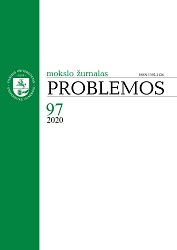The Interpretive-Sensory Access Theory of Self-Knowledge: Empirical Adequacy and Scientific Fruitfulness
The Interpretive-Sensory Access Theory of Self-Knowledge: Empirical Adequacy and Scientific Fruitfulness
Author(s): Paulius RimkevičiusSubject(s): Epistemology, Philosophy of Mind, Philosophy of Science
Published by: Vilniaus Universiteto Leidykla
Keywords: self-knowledge; Peter Carruthers; interpretive-sensory access; empirical adequacy; scientific fruitfulness;
Summary/Abstract: The interpretive-sensory access theory of self-knowledge claims that we come to know our own minds by turning our capacities for knowing other minds onto ourselves. Peter Carruthers argues that two of the theory’s advantages are empirical adequacy and scientific fruitfulness: it leaves few of the old discoveries unexplained and makes new predictions that provide a framework for new discoveries. A decade has now passed since the theory’s introduction. I review the most important developments during this time period regarding the two criteria: whether the theory’s six main predictions were supported, and whether the theory’s predictions contributed to new empirical studies. I argue that the interpretive-sensory access theory of self-knowledge remains empirically adequate and scientifically fruitful.
Journal: Problemos
- Issue Year: 2020
- Issue No: 97
- Page Range: 150-163
- Page Count: 14
- Language: English

